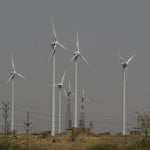Incidence of call drops has come down in Delhi between July and October, but telecom companies still have to work hard to meet the quality benchmark set for mobile services, telecom minister Ravi Shankar Prasad said on Wednesday.
“I am happy with the improvement but telecom companies still need to work to make their network better,” Prasad told reporters here.
He shared the data based on a survey by Telecom Enforcement, Resource and Monitoring (TERM) cell which operates under the Department of Telecommunications (DoT). The data showed that call drop situation on the mobile network has improved but the telecom operators are still beyond the quality parameters set for call drops.
As per benchmark, not more than 2% of the calls made on a telecom operator’s network should fail or disconnect automatically due to network-related faults.
According to the TERM cell report, call drop on the network of Bharti Airtelimproved from the range of 2.92 – 17.77 in August to 0.08-2.98 at the end of October.
Similarly call drop on Vodafone improved from 1.53-6.63 to 0.3-2.97, Idea Cellular from 3.34-10.9 to 0.14-2.65, Reliance Communications, 1.53-24.83 to 0.02-5.15 and Aircel from 0.77-6.21 to 0.29-2.66 during the period under review.
Prasad said that situation has improved because of additional installation of mobile towers, repairing of non-functional cell sites and improvement in network design. “Earlier about 35,000 cell sites were found to be defective. In the last 25,598 were found to be defective. Out of which 13,775 have been repaired and 13,823 are pending,” the minister informed.
There are total 18.33 lakh mobile sites in India installed by telecom operators.
On Tuesday, the Telecom Regulatory Authority of India (Trai) report said the performance of operators deteriorated during the April-June quarter on sequential basis with regard to worst-affected mobile sites or cells having more than 3 % call drop rate.
The report on the operators’ performance said that mobile operators had a call drop rate of as high as 24.59% for 2G services and 16.13% for 3G services in the April-June quarter of 2015.




